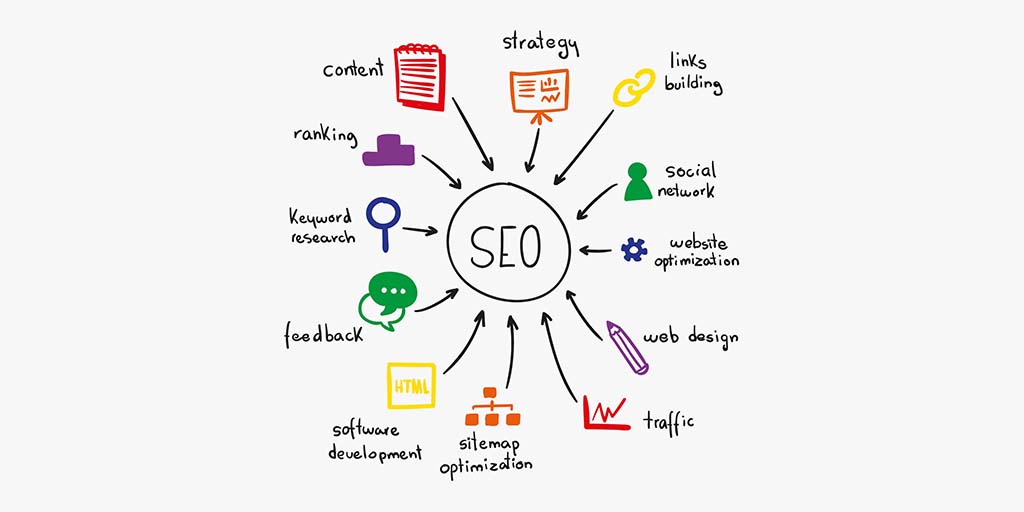
How Do You Blend User Experience in SEO Writing?
Summarize with:
If you remember, there were times when people used to stuff keywords just to rank well in search engines. But, with time, everything changes. Search engines have grown smarter, and today, a balanced focus on UX & SEO is essential to drive meaningful traffic and deliver a better user experience that actually converts.
If you look today, Google considers 200 factors for a page to rank number 1. Skill requirements to rank your page are much more complicated. One of the most important aspects is User Experience. The new reality is that UX & SEO play a massive role in the better ranking of your website. Hurix Digital understands what needs to be done for articles to rank higher by combining effective UX & SEO strategies.
Online users over the years might have become understanding, but they have also become impatient. Present a clumsily designed website detracting from the user experience, and you will be playing a losing game, no matter how great your content is.
The whole Google algorithm focuses on the experience of your audience. It wants you to enrich the reader’s needs & wants by giving valuable content. Prioritizing UX & SEO is also one of the prominent reasons for your online presence.
How Does Google Consider Your Site’s User Experience?
Google focuses on two major parameters:
- Click Through Rate (CTR)
- Bounce Rate
1. Click Through Rate
CTR is the number of clicks that your article/ad received after seeing it in the search engine. In mathematical terms, CTR = Clicks/Impressions.
This is the first step of your user journey. So, why would a reader click on your article? Ideally, because they have come across an interesting/unique title that could be worth reading.
So, your first job is to write an amazing title.
Keep in mind that ‘Up to 80% of people may not even read your article if you don’t have a powerful headline that urges the reader to click’.
If you have a great headline, your job is half done.
Take it from David Ogilvy, he said:
“On average, five times as many people read the headline as read the body copy. When you have written your headline, you have spent eighty cents out of your dollar.”
Some tips to write catchy headlines
i) User Formulas
Formulas often prove your article has some efficiency, and this grabs the attention of readers. For instance— The Secret to Be a Billionaire, How to Invest like Warren Buffett, etc.
Make sure you use these formulas when you feel confident about sharing what your readers might not know.
ii) Use Numbers
In SEO, numbers have magic! People click on titles that have numbers in them.
Suppose you are planning an offbeat vacation, but you are unsure about what to do there. You will probably Google about it and are likely to click on articles that say — 10 places to explore, 15 cafes you must visit, etc.
The whole point is, that the numbers are a time-honored trigger to create attraction. They especially work great on social media.
iii) Use Appealing Adjectives
Adjectives like awesome, epic, powerful, smart, critical, etc., compel readers to click on your article. Make sure you use this when you create something valuable.
Note— If you are stuck and don’t know what headers to write, you can use these tools that will help you generate amazing titles:
What happens after the header?
Well, now amongst 80% of people, only 20% will read the rest of your content!
Engage your audience with high-quality content. But this is not the end. Enter Bounce Rate.
2. Bounce Rate
It is the number of times that a reader spends reading the article. For instance, if a reader comes to your page and spends quality time, this indicates that your content is doing great. Google is impressed and rewards you with a higher rank (a simple version keeping all other factors the same).
A high bounce rate counts as negative SEO. This also indicates a bad user experience. One of the major reasons for a high/low bounce rate depends on the quality of your content.
Provide your readers with high-quality content packaged in a beautiful and loading time-optimized website to reduce bounce rate.
Four Tips to Reduce Bounce Rate & Improve Content Quality
- Use Stats and Images: Readers relate to pictures. It increases the chance of engagements. You can always add humor texts to images.
- Use Videos: 43% of users like to see video content made as per research by Hubspot. Also, video increases the average time of the page. But, make sure you optimize it well by embedding links to the video in your blog.
- Write Unique: Don’t write what others have already written. Create unique and interesting content, as we always do at Hurix Digital
- Provide Solutions: Give answers in your article. A reader should learn something from you. You can provide answers in the form of Tips/Tricks/Hacks, etc.
Conclusion
SEO writing is one of the critical factors for achieving a high rank in search engines. But great content by itself doesn’t get you anywhere. It needs to be complemented with a delightful user experience for really unlocking the high ranks. UX also improves your ROI and conversions. With the above tips and tricks on user experience and SEO, you will be able to manage and land your page with a better rank on the search engine.
 A Space for Thoughtful
A Space for Thoughtful 



